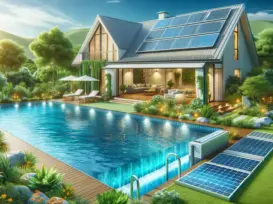Grus Home Energy - Water Efficiency
Maximizing Water Efficiency in Your Home
Water efficiency is becoming increasingly important as freshwater resources become more scarce. By incorporating water-efficient practices and products in your home, you can conserve water, save money on utility bills, and reduce your environmental impact. Here are some tips for maximizing water efficiency in your home:
1. Fix Leaks: Leaky faucets, toilets, and pipes can waste a significant amount of water. Regularly check for and repair any leaks in your home to prevent water wastage.
2. Install Water-Efficient Fixtures: Replace old, inefficient fixtures with water-saving models. Low-flow showerheads, faucets, and toilets can significantly reduce water usage without sacrificing performance.
3. Use Water Wisely: Be mindful of how you use water in your daily activities. Turn off the tap while brushing your teeth, only run the dishwasher and washing machine with full loads, and water your garden during the early morning or late evening to minimize evaporation.
4. Collect Rainwater: Install a rain barrel to collect rainwater for outdoor use. This can help reduce your reliance on municipal water sources for activities like watering your garden or washing your car.
5. Choose Water-Efficient Appliances: When shopping for new appliances, look for models that are Energy Star certified and water-efficient. Energy-efficient dishwashers, washing machines, and water heaters can help you save both water and energy.
6. Landscape with Water-Saving Plants: Choose drought-resistant plants for your landscaping to reduce the amount of water needed for irrigation. Mulch around plants to retain moisture and reduce evaporation.
7. Monitor Your Water Usage: Keep track of your water consumption by monitoring your water bills. Look for any sudden spikes in usage, which could indicate a leak or inefficient water usage habits.
8. Educate Your Family: Get your family involved in water-saving efforts by educating them on the importance of water conservation and how they can contribute. Encourage everyone to take shorter showers, fix leaks promptly, and avoid wasting water.
By implementing these water-efficient practices in your home, you can reduce your water consumption, lower your utility bills, and contribute to the conservation of this precious resource. Small changes can make a big difference when it comes to water efficiency, so start implementing these tips today and make a positive impact on the environment.
©2025 All Rights Reserved. Grus IoT Co.,Ltd.
